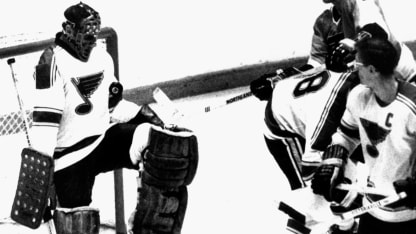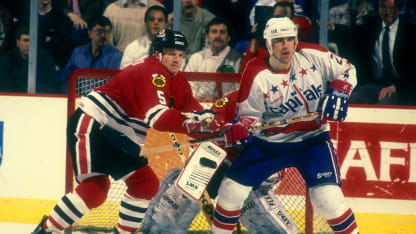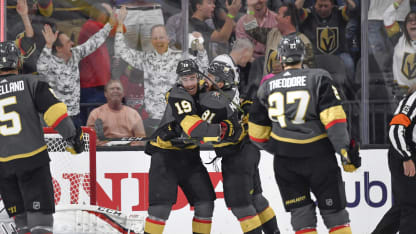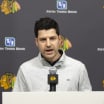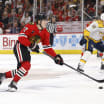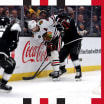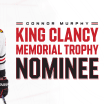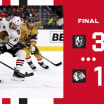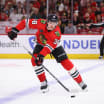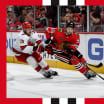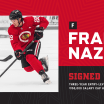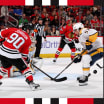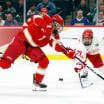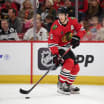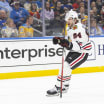Duty compels us to report that the Capitals' first conquest was at the expense of a team dear to our hearts. On Oct. 17, 1974, the visiting Blackhawks, travel-weary after a home triumph over the Bruins one night earlier, succumbed 4-3. Washington's record at that point in time was a promising one victory, two losses, one tie.
The rest is a mélange of numbers that could pass for typographical errata. The Capitals finished the season with a record of 8-67-5. Bowman's mighty Canadiens romped to the top of the Norris Division with 113 points. The Capitals brought up the rear in no uncertain terms with 21, yielding an astronomic 446 goals. They endured a 17-game losing streak. They lost four games by 10 or more goals.
The Capitals actually had a player, Bill Mikkelson, who wound up minus-82 on a squad with a goal differential of minus-265. Their backup goalie, Michel Belhumeur, posted a mark of 0-24-3 with a goals against average of 5.36 - which was still a shade better than that of No. 1 masked man, Ron Low.
Winless on the road with the season's end mercifully in sight, the Capitals refused to mail it in when they landed in Oakland on March 28, 1975. They somehow vanquished the Golden Seals, 5-3, before a focus group of 3,933 customers. Aware that they would not touch the Stanley Cup, the ecstatic Capitals grabbed a garbage pail and handed it off to each other while taking laps around an empty rink. Their final road record was 1-39.
Milt Schmidt, a Hall of Famer who starred for and then built the Bruins, was the Capitals' coach for that momentous evening. He had been hired as general manager, but took over behind the bench after two predecessors - Jim Anderson and Red Sullivan - departed. They intended to make Washington believe in Santa Claus, but bowed out, citing the Sanity Clause.
Abe Pollin, who owned the Washington Bullets in the National Basketball Association (and much, much later would lure Michael Jordan there) spent $6 million for an expansion hockey team. He also built the Capital Centre in Landover, Md., and was hailed as a civic hero in our nation's capital, then deeply enmeshed in the Watergate scandal that cost President Richard Nixon his job.
